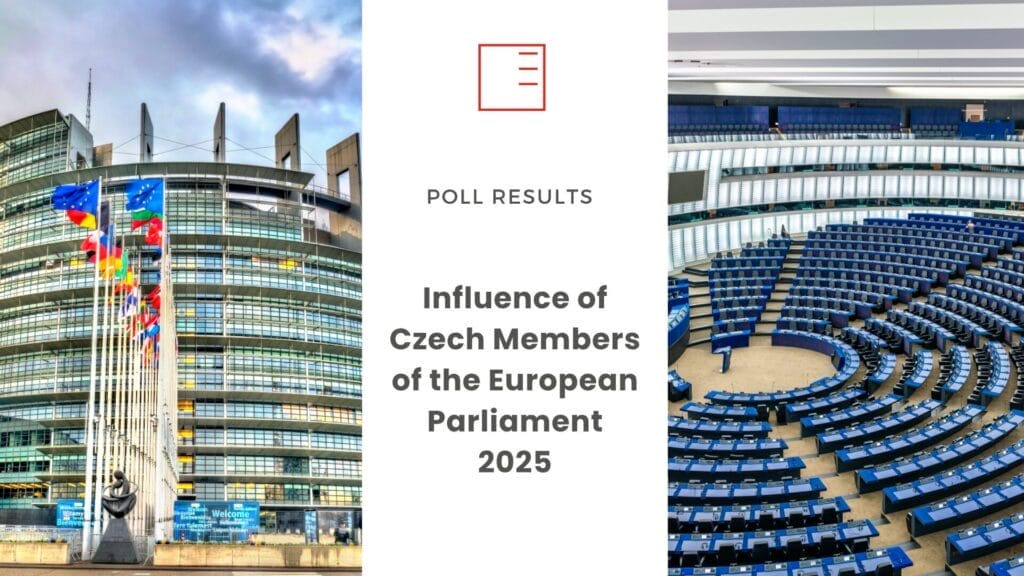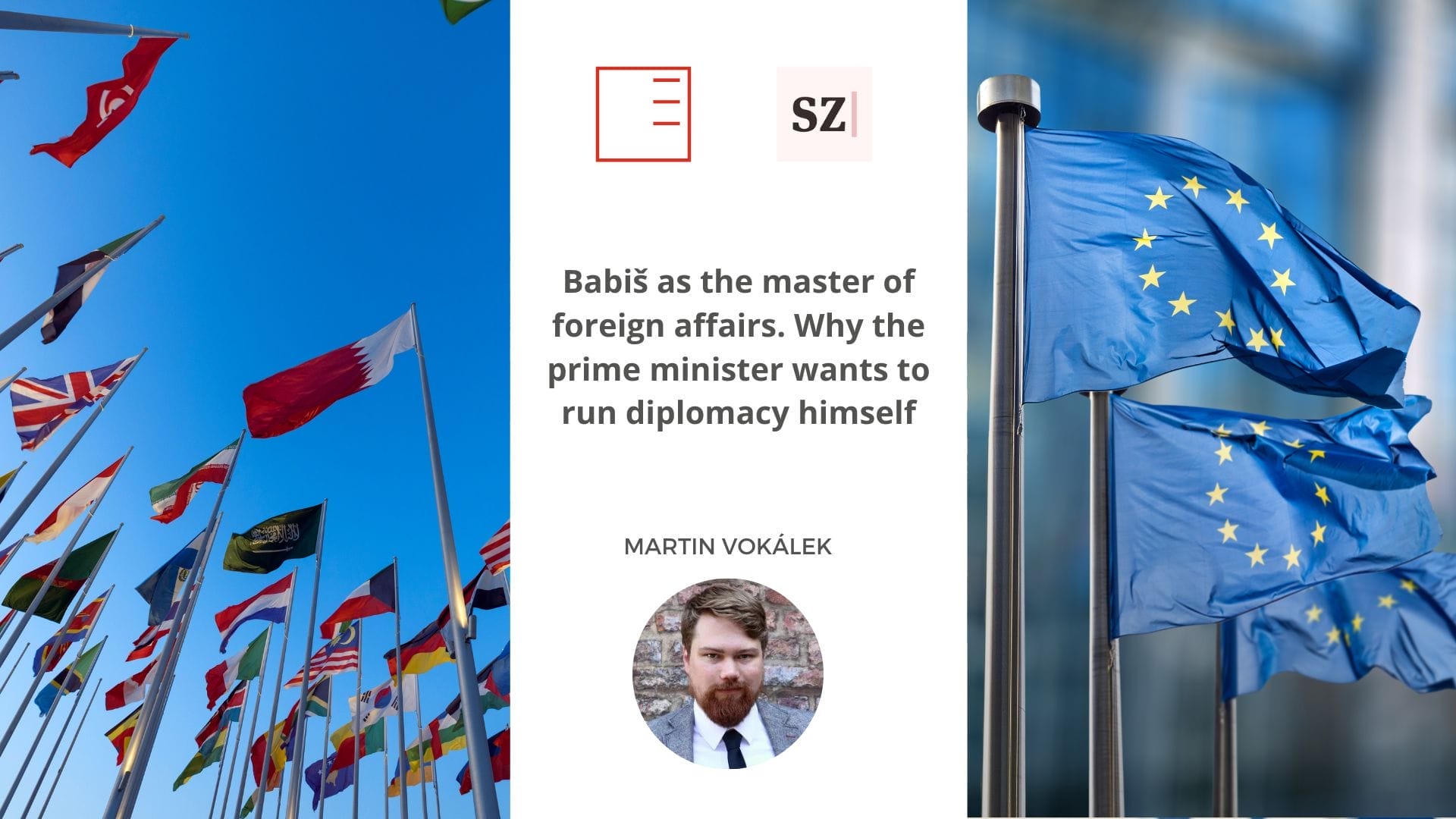POLL RESULTS | Influence of Czech MEPs 2025

Purpose of the Ranking
Assessing the work and influence of Members of the European Parliament is inherently difficult. It is not possible to define a completely objective set of criteria that would allow for comprehensive evaluation. While there are internationally recognized rankings, such as MEPMatrix.eu, which attempt to assess influence impartially using quantitative indicators—such as the number of reports authored or speeches delivered in plenary—these approaches have a serious limitation: they overlook content, and thus the actual significance of the legislation or speech in question.
An alternative approach is to evaluate the opinions of experts who closely monitor the work of MEPs. However, this method also has limited explanatory power, as it is inherently subjective and does not reflect voters' satisfaction with their representatives’ performance. The ranking by the Institute for European Policy EUROPEUM can serve as a valuable complement to the broader mosaic of indicators used to assess the work of MEPs.
How to Read the Ranking
This is not a representative survey designed to precisely measure the attitudes and opinions of all experts who follow EU politics through a rigid methodology. The ranking is based on the results of a poll conducted among a diverse group of respondents. For proper interpretation, it should be understood as indicative rather than definitive. To gain a more complete picture of the work and influence of Members of the European Parliament, it is important to complement the ranking with additional information and context—such as specific legislative activity, the significance of leadership roles within the Parliament, committees or political groups, and broader influence on both European and national political discourse.
Respondents
EUROPEUM Institute reached out to a broad range of experts, diplomats, civil servants, business representatives, and journalists across various sectors, aiming to compile as diverse a pool of respondents as possible. The final ranking is based on the responses received. A total of 87 respondents participated in the survey, rating individual Members of the European Parliament using a school-style grading system. The final scores for each MEP were then calculated as a simple arithmetic average of these grades.
2025 Results
1. Influence on EU Policy
In the category evaluating overall influence within the European Union, the highest scores in the survey were awarded to Luděk Niedermayer of TOP09 and STAN representatives Danuše Nerudová and Jan Farský. While Nerudová and Farský are newcomers to the European Parliament, Niedermayer also ranked highly last year (3rd place), confirming a consistent and strong evaluation from experts.
A notable shift compared to the 2024 ranking is the steep decline in perceived influence of MEPs from the ANO movement. While last year ANO representatives held leading positions across all categories (Charanzová, Dlabajová) or placed in the mid-range (Hlaváček, Kovařík, Knotek), this year the highest-ranked ANO MEP is Ondřej Kovařík in 10th place, followed closely by other party colleagues (Knotek, Bžoch, Dostálová). Some ANO representatives even received some of the lowest overall scores (Nagyová, Kubín). This drop is likely the result of significant personnel changes and ANO’s departure into the newly formed Patriots for Europe group.
On the other hand, the ODS party performed well, particularly Alexandr Vondra. A notable rise in influence—both legislative and discursive—was observed for Veronika Vrecionová, who jumped from a below-average position into the top third. Newcomer Ondřej Krutílek also received above-average ratings. By contrast, ODS members who had been rated poorly in the past (Zahradil, Tošenovský) are no longer in Parliament. Tomáš Zdechovský of the KDU-ČSL also consolidated his position. The lowest-rated MEP in terms of influence on EU policy is Ivan David (SPD), closely followed by Ondřej Dostál (Stačilo), Jana Nagyová (ANO), and Filip Turek (Přísaha and Motoristé sobě).
2. Influence on Domestic Priorities
Respondents in the survey make a distinction between MEPs’ influence within EU institutions and their ability to shape public debate and government priorities back home in the Czech Republic. In this category, MEPs from governing parties naturally have an advantage.
As in last year’s ranking, Alexandr Vondra maintained the top spot—he remains one of the most prominent figures of ODS and is closely aligned with Prime Minister Petr Fiala. High scores also went to Luděk Niedermayer and Danuše Nerudová.
Notably, some MEPs received relatively high marks in this category despite being rated poorly for their influence on EU policy or for promoting the Czech Republic's image in Brussels. This applies to Filip Turek (Motoristé sobě) and Kateřina Konečná, who is also leading the Stačilo! alliance in the upcoming national elections. Interestingly, the same effect did not apply to their colleagues Nikola Bartůšek and Ondřej Dostál, suggesting that domestic visibility may be driven more by personal branding than political affiliation.
The lowest-rated MEP in terms of influence on domestic politics was Jana Nagyová (ANO), whose media presence is largely limited to ongoing criminal proceedings.
3. Representation of the Czech Republic
Respondents also evaluated how individual MEPs contribute to promoting a positive image of the Czech Republic within the EU. Luděk Niedermayer received the highest rating in this category, followed by Jan Farský and Danuše Nerudová.
In general, MEPs from governing parties scored better in this indicator, while the opposition ANO movement performed worse—despite the fact that ANO representatives had scored relatively well in this area last year. One interesting shift is the drop of Alexandr Vondra to the bottom of the top third, in contrast to his strong performance in visibility and influence both within the EU and in the domestic sphere.
The lowest-rated MEP in terms of representing the Czech Republic was again Jana Nagyová (ANO), likely due to her ongoing criminal prosecution.





